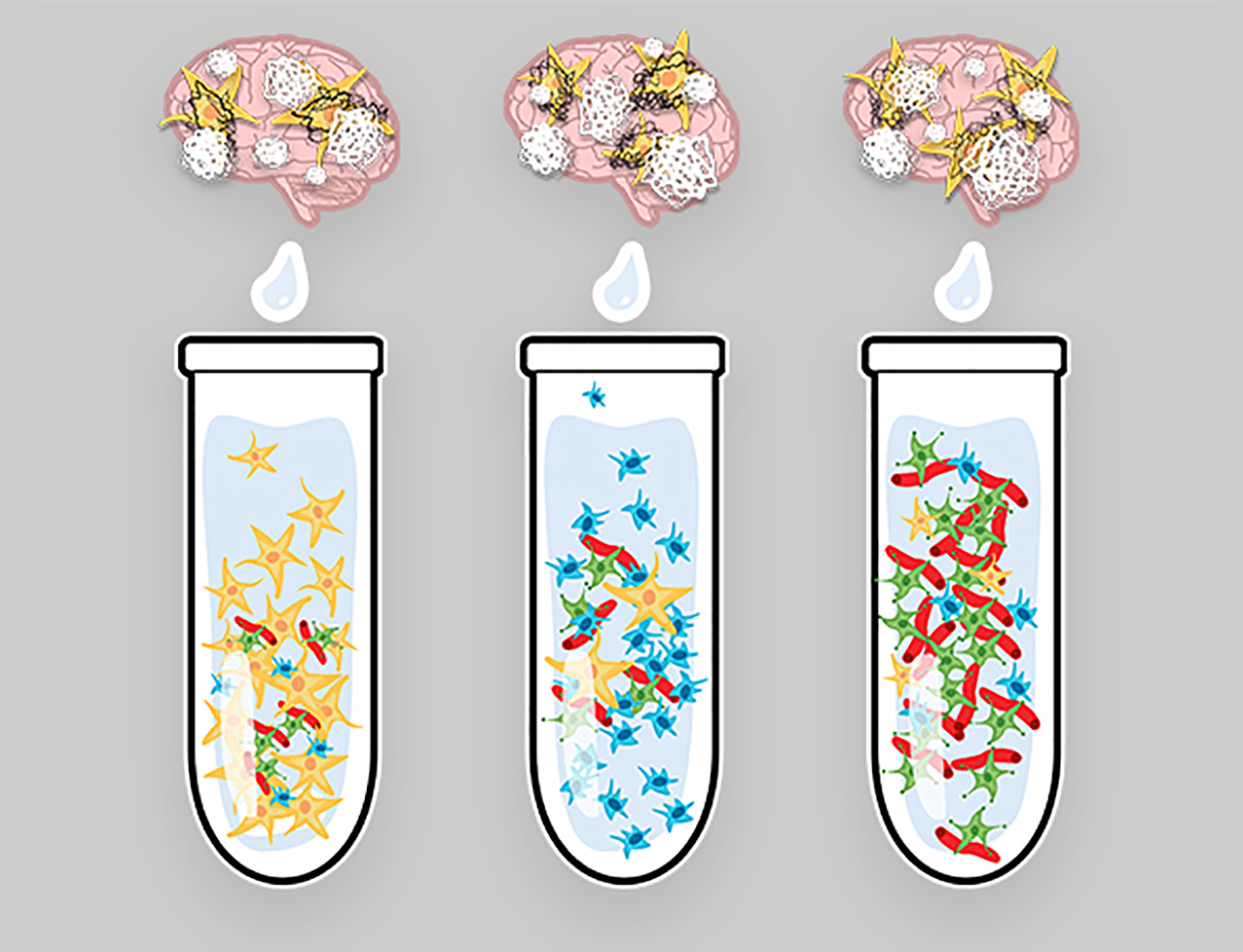Alzheimer’s disease is caused by the misfolding of proteins called amyloid and tau in the brain. In addition, other biological processes are also disrupted, like inflammation and growth of brain cells. Using new techniques, the scientists were able to measure these other biological processes in patients with misfolded amyloid and tau.
Three biological variants
Betty Tijms and colleagues measured 1,500 proteins in cerebrospinal fluid samples from 400 patients with Alzheimer’s disease. They found novel evidence that three distinct biological variants exist. One variant showed increased amyloid metabolism and increased nerve cell outgrowth. The second variant showed damage of the blood-brain barrier, and decreased amyloid metabolism and nerve cell outgrowth. The third variant showed disruptions in the immune system. These variants could be detected in very early stages of the disease, when memory functions were still intact.
Drug development
These results are important for drug development. In previous trials all patients have received the same drug. However, these new findings suggest that treatments need to be given to specific subgroups. For example, drugs that lower amyloid metabolism might only be beneficial in patients that show increased amyloid metabolism. At the same time, such drugs might be harmful for patients showing decreased amyloid metabolism. The next step in this research is to treat Alzheimer’s disease patients with medicine that is tailored to their specific variant.
This research was funded by the Memorabel programma van ZonMw and the Innovative Medicine Initiative program that is part of the European Committee.

Read the article by Betty Tijms et al. Pathophysiological subtypes of Alzheimer’s disease based on cerebrospinal fluid proteomics

